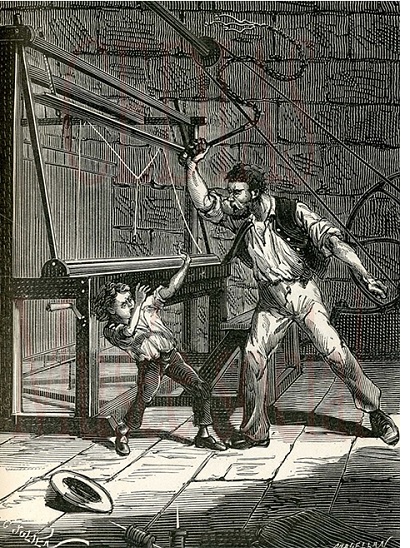Social Justice Bible Style Part 2
© 03.19.18 By David Eric Williams
 How long, Yahweh, must I call for help and You do not listen or cry out to You about violence and You do not save? Why do You force me to look at injustice? Why do You tolerate wrongdoing? Oppression and violence are right in front of me. Strife is ongoing, and conflict escalates. This is why the law is ineffective and justice never emerges. For the wicked restrict the righteous; therefore, justice comes out perverted (Habakkuk 1:2-4).
How long, Yahweh, must I call for help and You do not listen or cry out to You about violence and You do not save? Why do You force me to look at injustice? Why do You tolerate wrongdoing? Oppression and violence are right in front of me. Strife is ongoing, and conflict escalates. This is why the law is ineffective and justice never emerges. For the wicked restrict the righteous; therefore, justice comes out perverted (Habakkuk 1:2-4).
Last week we discussed the fact that true social justice must be biblically defined. We discovered that social justice is achieved as the followers of Jesus walk in obedience to God's word. It seems it is time for Bible believing Christians to take the high ground and stop allowing bleeding heart leftists to decide what is social justice and what is not. It used to be that the church took care of the poor, the sick and the vulnerable. Indeed, there are ministries today that do just that. But they do not drive the debate. Thus, it is important for followers of Jesus Christ to define the terms concerning the issue and take the lead in the outworking of justice.
Prayer is the first step in moving toward a more just society and in taking back our proper responsibility as Christians. In Habakkuk's prayer, he wondered how long he would have to cry to Yahweh for help. It seemed to the prophet that God was not listening. He was very specific about his concerns and he assumed that God's would be concerned about the violence and injustice in Jerusalem and Judah as well. As it turns out, God honored Habakkuk's prayer and answered him. Like Habakkuk, we must be diligent in prayer.
One of the obvious things we should include in our prayer is the call for God to act. Habakkuk asked God why he was being forced to look at injustice. He asked why God was tolerating wrong in society - oppression and violence - happening on a regular basis. We should have no qualms about questioning God in the same way. There is nothing wrong with asking God why things are the way that they are. The Scripture clearly tells us that God is a righteous and just God and therefore we are appropriate when we ask him why his righteousness and justice are not evident in our society. However, when we ask these kinds of questions we must be prepared for the answer.
In this lament, the prophet does not take personal responsibility for the reasons behind the injustice in Jerusalem and Judah. If we understand the history of the time we know the ruling class was corrupt and those with power enforced conditions of oppression and violence. According to Habakkuk, justice did not flourish because the wicked had "surrounded" the righteous and keep them from applying God's law to society. As a result what passed for justice was actually a perversion of righteousness.
Things are different today. True, the ruling class is still corrupt and the establishment decree and enforces laws that perpetuate injustice. The difference is that we live in a society where we have far greater freedom than was enjoyed by the ancient Judeans. We actually have opportunity to choose our leadership (theoretically at least) and when elected leadership fails to live up to their word we can take action to change things. In addition, and more importantly, the church in North America has the manpower and resources to work around the unjust bureaucracy.
We will return to this topic in a couple weeks and discuss how a work around might look.
Entire Site Copyright © 2025 By David Eric Williams










